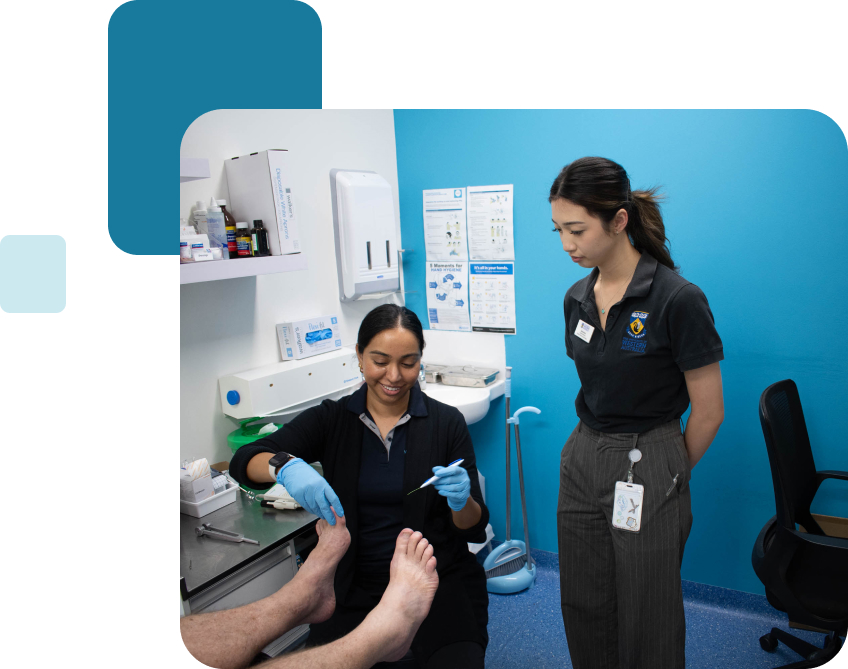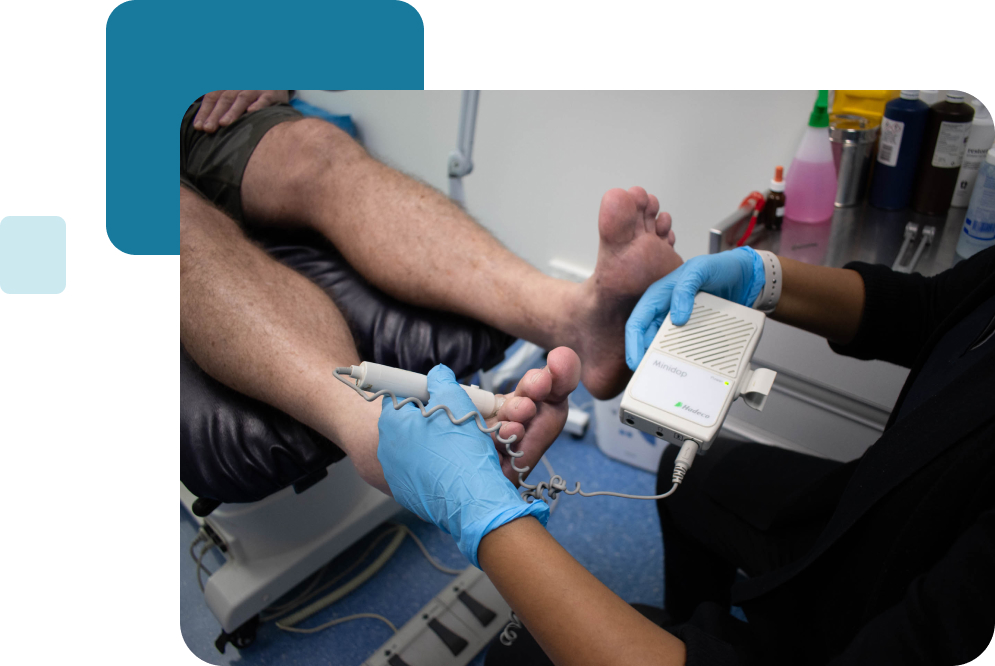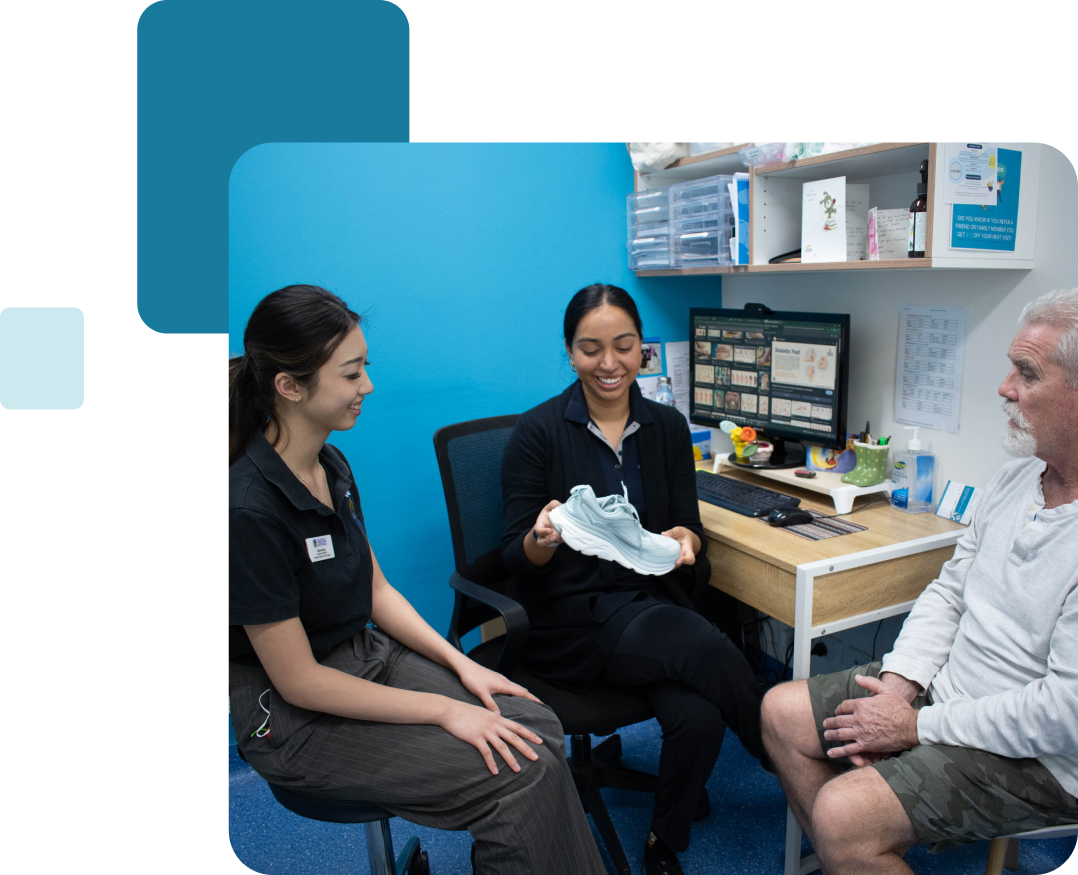99/103 Harris St, Bicton WA 6157, Australia

Fungal nail infections are common and can cause nails to become thick, brittle, or discoloured. At WA Health Group, our podiatrists assess and manage fungal nail conditions using safe, evidence-based care tailored to your needs.
At your appointment, we will:
Examine your nails and discuss your medical history.
Identify whether fungus is likely involved.
Explain suitable management options and expected timeframes.
Treatment may include:
Clinical nail care: thinning thickened nails to improve comfort and topical treatment effectiveness.
Topical antifungal products: applied regularly to help target infection.
Footwear and hygiene advice: to reduce recurrence.
Laser therapy (optional): offered where appropriate; results can vary.
If oral medicines are indicated, we may refer you to your GP.


Book an appointment if you have persistent nail changes, discomfort, or recurring infections. Our podiatrists are available at Canning Vale, Murdoch, and Burswood.
Your podiatrist will outline the likely benefits, risks, and limits of each option before proceeding. Nail improvement is gradual and varies between individuals. You will receive advice on preventing reinfection and maintaining nail health long term.
How do podiatrists know if it’s a fungal infection?
Your podiatrist will examine the nail and surrounding skin, review your history, and may recommend a laboratory test through your GP to confirm the presence of fungus.
Can fungal nails go away without treatment?
Fungal nail infections usually persist without treatment. Early assessment helps identify the best management approach and reduces the risk of spread.
Are fungal nail treatments painful?
Most treatments are well tolerated. You may feel mild pressure or warmth during certain procedures, such as laser therapy. Your podiatrist will explain what to expect before treatment.
How long does it take for nails to improve?
Nails grow slowly, so visible improvement can take several months. The timeline depends on the severity of infection and consistency with treatment.
Can I wear nail polish during treatment?
It’s best to avoid nail polish while treating fungal nails, as it can reduce topical treatment effectiveness and make it harder to track progress.
What are the risks of fungal nail treatment?
Risks are low and may include mild tenderness, temporary irritation from topical products, or warmth during laser therapy. Your podiatrist will explain these before care begins.
Can the infection come back?
Reinfection is possible. Good hygiene, rotating footwear, and managing tinea (athlete’s foot) can help prevent recurrence.
When should I see my GP instead?
If you have diabetes, circulation problems, or a nail infection that’s painful or spreading, it’s advisable to consult your GP for further assessment or possible prescription options.
